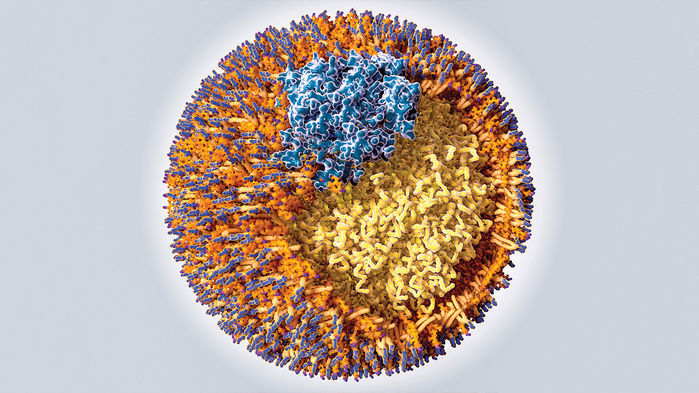Most readers of this forum are obsessed over their total cholesterol and LDL cholesterol values. That is because that's what their doctors focus on, and that is what decades of cardiovascular risk stratification have imparted on the medical community and the public at large.
In the last 20 years or so, this paradigm has been severely questioned, but familiarity of process and ease of understanding by front-line medical doctors have kept the real biomarker of cardiovascular disease (CVD) from being measured.
ApoB, which is a proxy for LDL-P (particle number) is a better biomarker for CVD risk.
Here's a link to an excellent article in a science magazine authored by a leading Canadian researcher, whom I have personally spoken with, that clearly articulates the realities:
sciencemag.org/news/2017/12...
Here's the introduction:
"The next time you go in for a medical checkup, your doctor will probably make a mistake that could endanger your life, contends cardiologist Allan Sniderman of McGill University in Montreal, Canada. Most physicians order what he considers the wrong test to gauge heart disease risk: a standard cholesterol readout, which may indicate levels of low-density lipoprotein (LDL) or non-high density lipoprotein (non-HDL) cholesterol. What they should request instead, Sniderman argues, is an inexpensive assay for a blood protein known as apolipoprotein B (apoB).
ApoB indicates the number of cholesterol-laden particles circulating in the blood—a truer indicator of the threat to our arteries than absolute cholesterol levels, some researchers believe. Sniderman asserts that routine apoB tests, which he says cost as little as $20, would identify millions more patients who could benefit from cholesterol-cutting therapies and would spare many others from unnecessary treatment. "If I can diagnose [heart disease] more accurately using apoB, and if I can treat more effectively using apoB, it's worth 20 bucks," he says.
Sniderman and a cadre of other scientists have been stumping for apoB for years, but recent reanalyses of clinical data, together with genetic studies, have boosted their confidence. At last month's American Heart Association (AHA) meeting in Anaheim, California, for example, Sniderman presented a new take on the National Health and Nutrition Examination Survey (NHANES), a famous census of the U.S. population's health. The reexamination, which compared people with different apoB levels but the same non-HDL cholesterol readings, crystallizes the importance of measuring the protein, he says. Across the United States, patients who have the highest apoB readings will suffer nearly 3 million more heart attacks, strokes, and other cardiovascular events in the next 15 years than will people with the lowest levels, Sniderman reported. As lipidologist Daniel Rader of the University of Pennsylvania Perelman School of Medicine puts it, the question of whether LDL cholesterol is the best measure of cardiovascular risk now has a clear answer: "No.""
------------------------------------
The NMR Lipoprofile test is the state of the art measure of LDL-P (particle number), but the Apo B test is an excellent proxy and is more readily available.
You can lower your LDL-P through diet (Mediterranean Diet) and lifestyle modification (daily exercise).
Half of all heart attacks and strokes occur to people with normal levels of LDL-C, therefore lowering LDL-C will not necessarily reduce your CVD risk.
